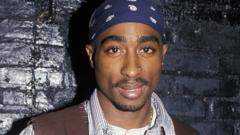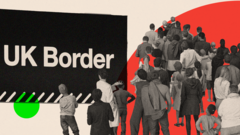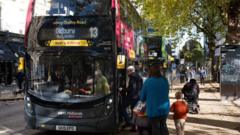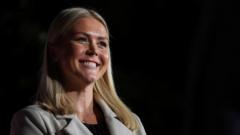
Quincy Jones, a legendary music producer who had experienced gang life in 1930s Chicago, played a crucial role in addressing the escalating tensions in the hip-hop world during the 1990s. As the east and west coast rap rivalry intensified, Jones organized a secret summit in 1995 to address the growing violence and potential dangers facing young artists.
The hip-hop landscape was deeply divided, with Sean Combs’s Bad Boy Records representing the east coast and Suge Knight’s Death Row Records dominating the west coast scene. Artists like Notorious BIG and Tupac Shakur were at the center of an increasingly volatile conflict. The tension had been building since 1994, when Tupac was shot and later implied that Biggie might have known about the attack.
Jones, who had already worked extensively in the music industry and understood hip-hop’s cultural significance, brought together approximately 50 influential artists and executives. The attendees included notable figures like Chuck D, MC Lyte, and Colin Powell, who was carefully kept away from potential negative publicity due to his political aspirations.
The summit was held in utmost secrecy. Jones switched venues at the last minute and confiscated all recordings to protect the participants’ privacy. His primary goal was to provide guidance to the younger generation and address the dangerous trajectory of the hip-hop scene.
During the meeting, Jones emotionally warned the artists about the real dangers they faced, saying, “They are not playing, there’s real bullets out there… I want to see you guys live to at least my age.” Colin Powell also played a significant role, reportedly putting Suge Knight in his place during a confrontational moment.
Ironically, Jones had previously had his own tensions with Tupac, who had criticized him in the past. However, they had reconciled, and Jones had grown close to Tupac through his daughter Kidada, with whom Tupac had begun a relationship.
Tragically, the summit could not prevent the impending violence. In September 1996, Tupac was shot and killed. The following year, Notorious BIG was murdered outside an event hosted by Jones’s record label. The east-west coast beef had claimed its most significant victims.
Fab 5 Freddy, who moderated the event, reflected that the violence was unnecessary, primarily driven by “wannabes and gang-related troublemakers” and fueled by media sensationalism.
Despite the summit’s inability to completely stop the violence, it remains a legendary moment in hip-hop history – a rare, secret gathering of influential artists and executives who attempted to bridge divides and save lives.
Today, the key figures from that era have faced their own challenges: Suge Knight is in prison, Sean Combs is awaiting trial on serious charges, and the music industry continues to reckon with the legacy of that tumultuous period.








